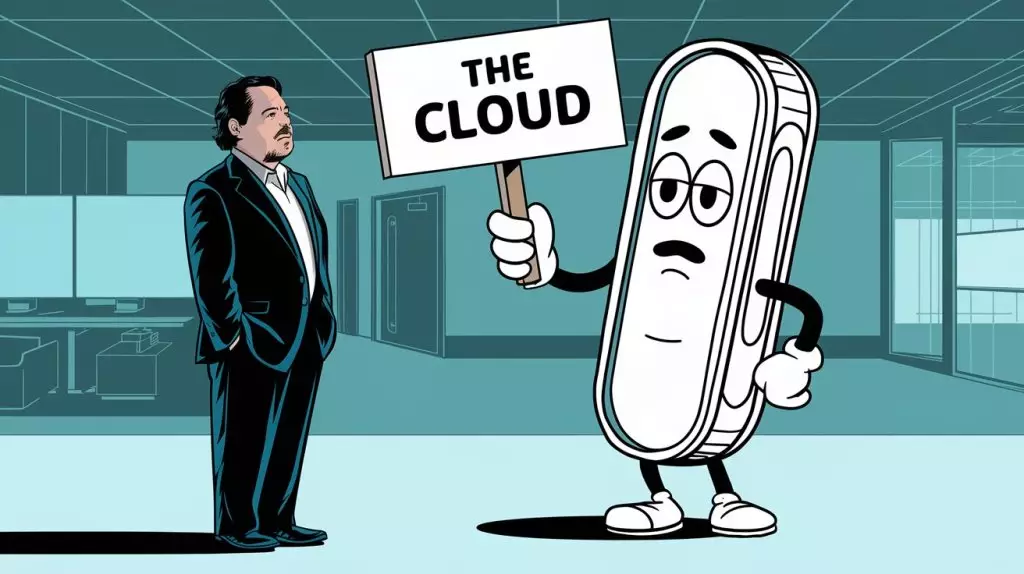In an age where artificial intelligence has become a focal point of technological advancement, reactions from industry leaders can provide valuable insight. Recently, Marc Benioff, the co-founder and CEO of Salesforce, voiced strong criticism of Microsoft’s AI assistant, Copilot, on his personal X account, fueling an ongoing narrative about competition in the tech sector. His comments were not just a casual observation; they revealed a deeper tension and contrasting perspectives on the current state of AI applications in business settings.
Benioff’s remarks came across as unfiltered and pointed. Describing Copilot as “disappointing,” he outright dismissed it as ineffective, claiming, “It just doesn’t work, and it doesn’t deliver any level of accuracy.” This critique culminated in a comparison of Copilot to Clippy, the infamous Microsoft Office assistant that many users found intrusive rather than helpful. Clippy, launched in 1996, was often mocked for its lack of understanding of user needs, representing a bygone era of tech support that failed to meet expectations. By invoking Clippy, Benioff not only aimed to undermine Copilot’s credibility but also played on nostalgic sentiments to draw a stark contrast between ineffective technology and desirable AI solutions.
While Benioff’s fierce opposition appears to come from a place of genuine concern for quality and effectiveness, it is crucial to recognize the context of his criticisms. As the leader of Salesforce, a direct competitor to Microsoft in the realms of customer relationship management (CRM) software and enterprise services, his comments may not be entirely disinterested. Salesforce and Microsoft have been engaged in a rivalry characterizing the evolution of business technology, with both companies racing to integrate AI into their platforms. Benioff’s claims may, therefore, reflect a strategic positioning for Salesforce, seeking to promote its offerings while simultaneously denigrating those of a major competitor.
Interestingly, Benioff’s analysis extends beyond Copilot, touching on broader themes regarding the state of artificial intelligence as a whole. Just days prior to his critique of Copilot, he voiced skepticism about the exaggerated claims surrounding AI. He stated, “much of AI’s current potential is simply oversold” and queried why AI, despite tremendous hype, was not solving significant global challenges like cancer or climate change. This admission could be viewed as ironic, given his enthusiasm for Salesforce’s own AI-driven initiatives, such as Agentforce. This duality in messaging creates a sense of conflict: while publicly endorsing AI’s business prospects, he simultaneously downplays its current capabilities.
Benioff’s remarks resonate with a growing contingent of critics who argue that the rapid proliferation of AI in business might not align with tangible outcomes. His concerns, echoing those of some industry watchers, might signal a turning tide in how AI’s promise is perceived, emphasizing the need for practical applications rather than aspirational marketing.
Considering Benioff’s criticisms, one must ponder the implications for both Salesforce and Microsoft, as well as for the broader tech ecosystem. If customers begin to question the practicality and effectiveness of AI tools, it could instigate a shift in market dynamics. Tech companies that promote substantive advancements could gain a competitive edge while those that only replicate previous inefficiencies—like Copilot’s resemblance to Clippy—might find themselves in precarious positions.
In this rivalry, Benioff’s comments may not only reflect a personal disdain for a competitor’s product but could also serve a strategic purpose. He positions Salesforce as a provider of more effective, reliable AI solutions, hoping that potential clients will see the merit in his differentiation.
As the tech landscape evolves, the commentary from leaders like Benioff highlights the complexities and challenges facing AI tools in real-world applications. While the potential of AI is significant, the path to its successful integration into business processes is fraught with skepticism and need for substantiation. As companies continue to innovate, the effectiveness of their products will inevitably dictate their standing in the competitive arena. The corporate discourse ignited by figures such as Benioff will undoubtedly shape public perception and potentially steer the future direction of artificial intelligence.


Leave a Reply